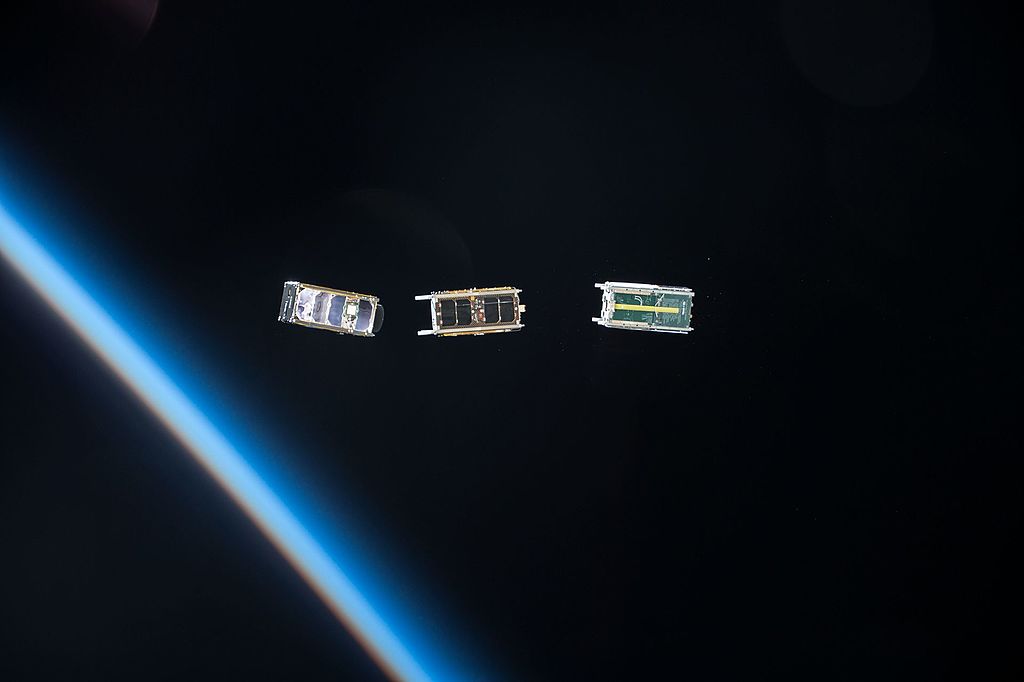Business
Tiny satellites to assist NASA in monitoring InSight’s landing
Two briefcase-sized orbiters will help NASA to monitor the landing of its InSight lander in Mars.

NASA’s InSight is set to land on Mars in less than a week and it is accompanied by twin orbiters called MarCO or Mars Cube One, according to Science News. These orbiters are also known as CubeSats which are small and inexpensive satellites. Because of their size, they can be easily built and launched. MarCO was launched at the same time as InSight—a shorter term for Interior Exploration using Seismic Investigations, Geodesy and Heat Transport.
InSight was launched in Vandenberg Air Force Base in California last May 5, together with MarCO, but the orbiters have been navigating on their own since the launch. Upon the landing of InSight, the twin CubeSats would navigate their way to the lander’s position, allowing them to send information back to Earth. Though both orbiters are backing up each other, they are operating individually. MarCO would also be the first CubeSats to travel this far from Earth.
Faster data transfer
Bringing its own communication system would mean faster data transfer from the lander and orbiters to Earth. According to reports, it would only take 8 minutes for the signal to travel from Mars to Earth. MarCO is now being tested away for future missions to send back data on their entry, descent and landing.
The landing of InSight as it touches the Mars’ atmosphere would only take about 6.5 minutes, which means that by the time NASA receives the signal that InSight has entered the planet’s atmosphere, it would have already landed. The InSight traveled about 300 million miles in six months, per NBC News.

MarCO’s job will be over after the InSight has already landed. (Source)
According to NASA, the InSight lander was designed to land in a dust storm. It will land in Elysium Planitia, which is near the equator of Mars. It is considered the largest parking lot in Mars. The landing site “offers geologically rich terrain with landforms reaching as far back as 3.6 billion years, and could potentially answer important questions in planetary evolution and astrobiology,” says NASA’s Science Mission Directorate Thomas Zurbuchen, per National Geographic.
MarCO’s job will be over after the InSight has already landed. Because of its size, the orbiters don’t have enough fuel or equipment to enter a long-term orbit around Mars. Though this is the case, there are still existing orbiters that can support the mission such as NASA’s Mars Reconnaissance Orbiter. The existing Mars orbiters could still support two other Mars missions in 2020 which are NASA’s Mars 2020 rover and ExoMars rover which is developed by the European Space Agency and Russian space agency.
Apart from the two missions in 2020, there are no plans for the existing orbiters yet. According to Joel Krajewski, an engineer in NASA’s Jet Propulsion Laboratory, “Right now, there’s not an active plan for an orbiter beyond that time frame.” He added that existing orbiters have shortened life spans as they continue to burn fuel to position themselves to observe the landing of other spacecraft. This is why the agency considered sending CubeSats as they could help to monitor the landing of spacecraft without further shortening the lives of bigger orbiters.
Unlike the NASA Mars Exploration Program’s Curiosity rover, InSight will not be able to move around Mars. Instead, it will use a number of instruments and its seven-foot-long robotic arm to drill about 16 feet below the surface. The goal of InSight is to provide comparative data on Mars interior to Earth’s. It also has seismometer and thermometer in order to measure the frequency and magnitude of marsquakes.
NASA also said that InSight does not intend to search for life but to show if microbes do or ever lived beneath the surface. The InSight lander is estimated to land on Nov. 26.

-

 Fintech7 days ago
Fintech7 days agoImpacta VC Backs Quipu to Expand AI-Driven Credit Access in Latin America
-

 Fintech2 weeks ago
Fintech2 weeks agoNubank Launches in Argentina With $474M Bet to Shake Up the Fintech Market
-

 Impact Investing4 days ago
Impact Investing4 days agoClimate Losses Drive New Risk Training in Agriculture Led by Cineas and Asnacodi Italia
-

 Biotech2 weeks ago
Biotech2 weeks agoWhy Bioceres Shares Slide Into Penny Stock Territory


























You must be logged in to post a comment Login